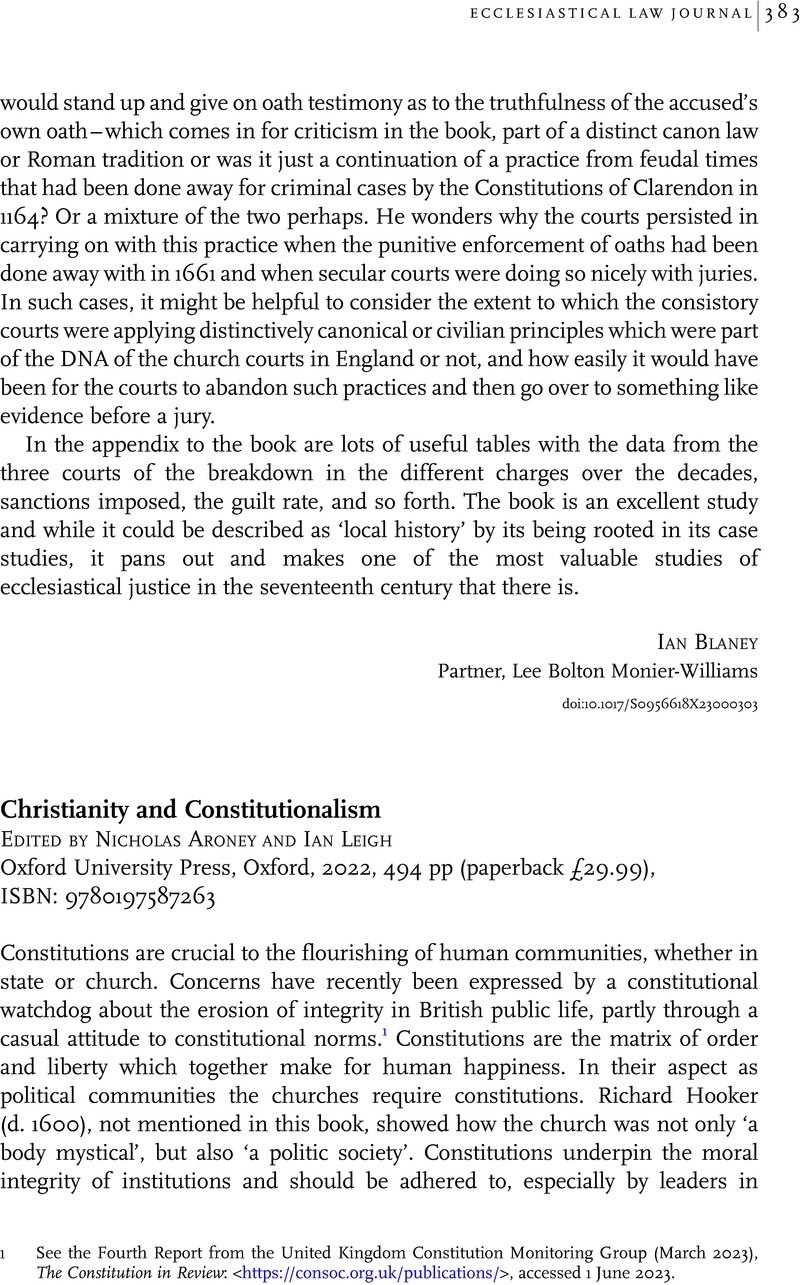No CrossRef data available.
Published online by Cambridge University Press: 05 September 2023

1 See the Fourth Report from the United Kingdom Constitution Monitoring Group (March 2023), The Constitution in Review: <https://consoc.org.uk/publications/>, accessed 1 June 2023.